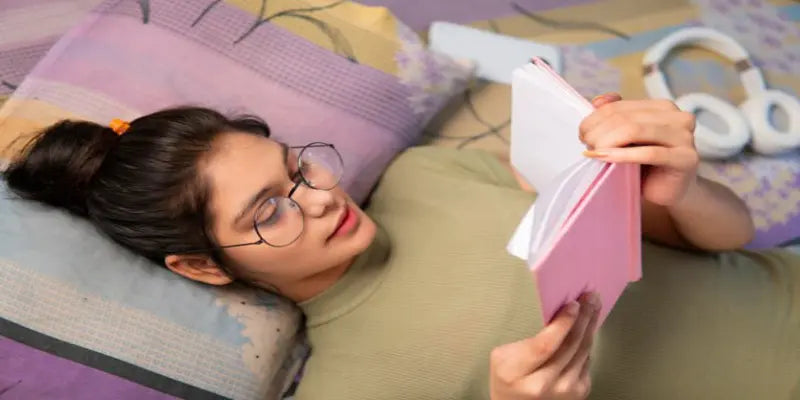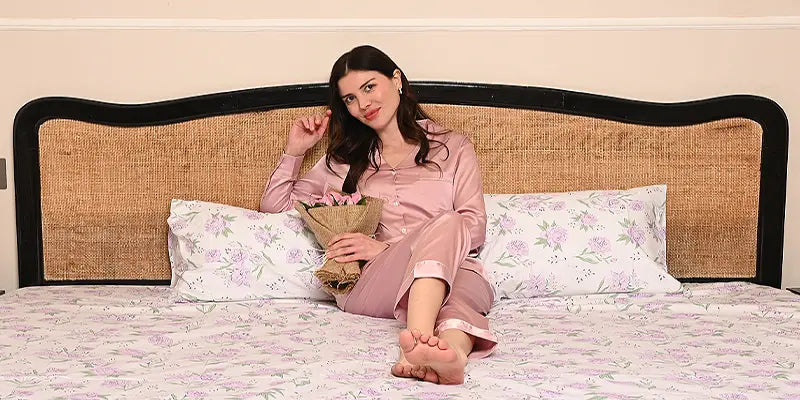
Tips for a Consistent Sleep Schedule at College
Life was so sorted at school, without definite classroom hours and a good sleep schedule, but once we entered college, things became a little harder to manage. A normal student life includes odd lecture hours, late night homework, and partying. One thing that is gonna mess up in college is your sleep schedule.
Most students do not get enough sleep at night and try to make up for lost sleep by sleeping late on weekends. Unfortunately, this way of life is neither healthy nor a sustainable solution to sleep deprivation. In this blog, we will look at a few helpful tips for maintaining a consistent sleep schedule in college.
Tips for a College Sleep Schedule
Stick to a Routine
One of the most key challenges that college students face is the lack of a regular routine. Whether it's a late-night party or an early walk, something is going to disturb your sleep schedule. It is important that you stick to the same schedule every night; it might seem to be too much, but it is needed to regulate your body's internal clock. Going to bed and waking up at the same time every day, including weekends, will make it easier for you to fall asleep and wake up naturally.
Create a Relaxing Bedtime Routine
Even if you can't always go to bed at the same time each night or have to study late into the evening, it's important to stick to a consistent bedtime routine, which sends a signal to your brain that it is the time to go to sleep.
You can do relaxing stuff like yoga and meditation, reading a book (unrelated to education), journaling, taking a warm bath or shower or listening to sleep music. Sticking to the same routine everyday can help your body and brain adapt to it with relaxation and sleep.
Limit Screen Time Before Bed
It is quite common for college students to stick to their mobile phones and other electronic devices all the time. The blue light emitted by phones, tablets, and laptops can interfere with your sleep by suppressing melatonin production. Try to avoid screens for at least an hour before bedtime, or use blue light filters if you must use them. Make this a habit of putting your phone and other devices away before your bedtime routine, it should not be part of it in any way.
Watch What You Eat and Drink
If you live on your own, you must know the struggle of cooking a full meal, we always end up having junk food. It is not ideal to feed on heaving meals or caffeine or surgery snakes close to bedtime. This can make it harder for you to fall asleep.
Create a Sleep-Friendly Environment
Maintaining a conductive sleep environment—a calm, dark room—is important for getting a good night's sleep. However, if you share your room and have no control over the temperature, it could be difficult for you to maintain a comfortable environment. You should use earplugs and eye masks if that's the case. If not, try turning on a Spotify white noise mix and drift off to sleep.
Get Regular Exercise
If it is not possible for you to go for morning walks, try to take out some time to exercise during the day. Even 30 minutes of physical activity every day can help you sleep better. If you're new to exercise, start with anything low-impact, such as walking, yoga, or the elliptical machine.
Manage Stress
College life can be stressful, but finding healthy ways to manage stress can significantly improve your sleep quality. Try relaxation techniques like yoga, meditation, or talking to friends or counselors.
Nap Wisely
Most students take naps during their free time between classes. While napping can seem tempting, especially after a late night of studying, keep them short (about 20-30 minutes) and avoid sleeping too close to bedtime to avoid affecting your nighttime sleep.
Conclusion
By implementing the above tips into your daily routine, you can improve your sleep quality and overall well-being throughout college. Here's to feeling refreshed and ready to face whatever college throws at you!
A good pillow can help you sleep better at night, and if you live far away from home, it can make you feel as if you're sleeping in your own bed. The Memory Foam Pillow is one of the best pillows for sleeping since it is comfortable and supports your neck and spine for a relaxing, peaceful sleep.








